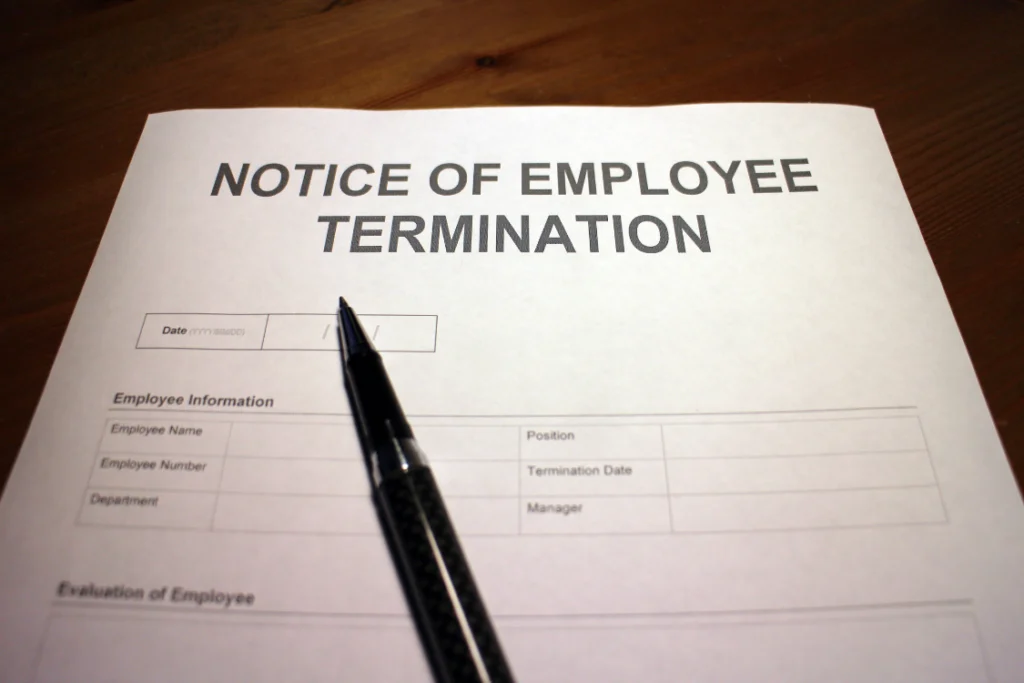Would you trust your entire business to a partner who shows cracks beneath the surface? In the dietary supplement industry, your manufacturer isn’t just filling capsules or bottling powders. They’re holding your brand’s reputation, product quality, and customer trust in their hands. The problem comes when warning signs start to appear. A sudden rebrand, missed deliveries, or unexpected staff layoffs may not look serious at first, but together they point to unstable supplement manufacturer red flags that can create supply chain disruptions, quality control failures, and costly delays that ripple through your entire business.
This article highlights five red flags every entrepreneur should recognize before signing a contract. By knowing what to watch for, you’ll be better equipped to protect your supplement brand and choose a manufacturing partner who can support long-term success.
Why Manufacturer Stability Matters for Your Brand
A stable supplement manufacturer helps you deliver consistent, safe, and compliant dietary supplement products. An unstable one exposes your company to risk, hurting both operations and your reputation.
Stability isn’t just about keeping production running. It’s about reliability, trust, and alignment with industry regulations that protect brand owners and many consumers. Without it, the business partner you rely on can quickly become a liability.
How instability affects product quality and customer trust
In the dietary supplement industry, product quality is non-negotiable. Missed deadlines, changes in raw materials, or inconsistent formulas create quality issues that undermine trust. When a manufacturer cuts corners on current good manufacturing practices or ignores testing standards, supplements may fall short of label claims or even fail food safety checks.
In a study on vitamin C, researchers found it may help support the body’s natural antioxidant defenses. Similar research on fish oil and vitamin D has explored their roles in supporting cardiovascular and bone health. Even one poor-quality batch of these supplements can damage brand reputation, and with many consumers purchasing dietary supplements and health foods, brand owners cannot afford mistakes that weaken trust.
The long-term risks of choosing the wrong partner
Choosing the wrong supplement manufacturer sets off a chain reaction. Frequent supply chain disruptions, reduced production efficiency, or bottlenecks in production capacity delay launches and cost revenue. When deadlines slip, brand owners may need to scale production elsewhere, forcing them to start over.
The long-term risks go beyond lost sales. Financial instability, regulatory compliance violations, or federal law violations under the Food, Drug, and Cosmetic Act can drag supplement brands into legal trouble. For a company focused on long-term success, ignoring unstable supplement manufacturer red flags is never in your best interest.

Red Flag #1: Frequent Rebranding or Name Changes
Frequent name changes suggest more than a marketing update. They may signal deeper problems like legal challenges, failed ventures, or attempts to escape a damaged reputation.
For supplement brands, this matters because your manufacturer should project reliability, not confusion. If a contract manufacturer keeps reinventing itself, it raises questions about the company’s stability, transparency, and ability to meet industry standards.
Why it’s more than just a new logo
Rebranding in the supplement industry often points to warning letters, poor quality products, or unresolved compliance issues. Bad actors may try to distance themselves from failed supplement manufacturing ventures or prior regulatory affairs missteps.
When supplement manufacturers switch names often, they risk losing client feedback, sport certification, and credibility in the nutraceutical industry. For brand owners, this is a direct threat to product quality and market trust.
How to investigate company history
Due diligence is an important tool when evaluating a business partner. Use LinkedIn to review leadership changes, Google to search for past company names, and state registration databases to confirm ownership records.
Look for glowing reviews that seem manufactured or inconsistent histories that raise red flags. A reliable manufacturer should show full transparency, strong communication, and a stable history.

Red Flag #2: Sudden Layoffs or High Staff Turnover
A reliable supplement manufacturer needs skilled staff to manage the production process, from raw ingredients to finished product. Frequent layoffs or constant turnover show cracks in leadership, financial stability, or both.
For brand owners, this instability can reduce production capabilities and delay fulfillment in a timely manner. A strong team ensures consistent quality control and regulatory compliance. A weak one puts your business at risk.
What high turnover tells you about internal problems
High staff turnover often reveals deeper financial instability or poor management. Skilled employees won’t stay at a company plagued by cash flow issues, unpaid wages, or constant restructuring.
When critical staff leave, oversight of encapsulation machines, raw materials testing, or quality checks suffers. That can cause compliance gaps and increase the chance of banned substances, heavy metals, or mislabeling being overlooked in the finished product.
How to research their team
LinkedIn offers a clear picture of employee stability. Look for patterns of frequent leadership changes, mass exits, or sudden layoffs. If a supplement manufacturer’s vice president or quality control manager left after a short tenure, it’s worth asking why.
A company with low staff morale is less likely to maintain good manufacturing practices or meet regulatory requirements. Strong, consistent teams protect brand reputation and reduce risk.

Red Flag #3: Missed Deliveries or Unpredictable Lead Times
A dependable manufacturer delivers on schedule. Repeated missed deliveries or unpredictable lead times show deeper problems with supply chain management or production efficiency.
For supplement brands, every delay means disappointed customers, wasted marketing spend, and stalled revenue. If your manufacturer can’t keep promises, your long-term success is at risk.
When delays go from occasional to concerning
One late shipment of dietary ingredients is an error. Repeated delays in delivering supplements like vitamin D or fish oil are a pattern of unreliability.
These delays may result from limited production capacity, sourcing issues with raw ingredients, or poor planning in the manufacturing process. Over time, supply chain disruptions create instability that no brand can afford.
What to ask about their fulfillment and supply chain
During vetting, ask about their backup suppliers, average lead times, and how they handle emergencies. A reliable supplement manufacturer should detail their process for scaling production, securing raw materials, and meeting deadlines in a timely manner.
Questions about one supplier vs. multiple suppliers, contingency plans for raw ingredients, and how they reduce risk during disruptions reveal the manufacturer’s reliability. Strong answers reflect good manufacturing practices and protect brand owners from costly delays.

Red Flag #4: Legal Trouble or Regulatory Violations
Legal problems are more than a manufacturer’s burden — they can spill over onto your brand. A company facing lawsuits, warning letters, or repeated FDA inspection failures puts every partner at risk.
In the dietary supplement industry, regulatory compliance is the baseline. A manufacturer who cuts corners can bring unwanted attention from federal food authorities, industry regulators, or even consumers.
How lawsuits and FDA warnings affect you
If your manufacturer receives an FDA warning for quality control failures or violations of supplement regulations, your brand name could appear in the same complaint. That means bad press, recalls, or even fines.
Violations of the Food, Drug, and Cosmetic Act or failure to follow the final rule on good manufacturing practices create serious liability. For brand owners, these red flags threaten brand reputation and market trust.
How to find legal and compliance records
You can investigate a manufacturer’s record using public resources. The FDA inspection database reveals inspection outcomes and warning letters. Public Access to Court Electronic Records (PACER) provides access to federal court filings. Certification databases confirm compliance with industry standards and testing standards.
Checking these tools saves time, reduces risk, and ensures you only work with manufacturers who prioritize food safety, regulatory affairs, and transparency.

Red Flag #5: Lack of Transparency or Evasive Answers
Clear communication and transparency are hallmarks of a trustworthy business partner. If a supplement manufacturer avoids questions, provides vague responses, or hides information, those are immediate red flags.
Transparency ensures brand owners know how the production process works, how raw materials are sourced, and how quality control is enforced. Without it, you risk aligning with a company that places your brand reputation in jeopardy.
Why good partners welcome your questions
Strong manufacturers explain their production process, supply chain, and testing standards openly. They should provide details about encapsulation machines, quality checks, and staff structure.
Bad actors, in contrast, give evasive answers or rely on glowing reviews instead of real data. A company that resists scrutiny may be hiding poor-quality practices or financial instability.
Questions to ask during your vetting process
To uncover unstable supplement manufacturer red flags, ask questions like:
- How long have you been in supplement manufacturing?
- What certifications and sport certifications do you hold?
- Can you share client feedback or references?
- How do you handle raw materials testing and heavy metals screening?
- What is your average lead time for scale production?
- How do you ensure regulatory compliance with federal law and industry standards?
- Who manages quality control and regulatory affairs on your team?
The way they respond is as telling as the answers themselves. A reliable manufacturer will provide full transparency and strong communication.

How to Avoid Unstable Manufacturers From the Start
Spotting red flags is important, but avoiding them before they cost you money is even better. Careful research and gradual trust-building help you identify reliable partners in the supplement industry.
A proactive approach saves time, reduces risk, and ensures your manufacturer is aligned with your brand’s best interests.
Do your research beyond the website
Don’t rely only on a manufacturer’s website or polished company pitch. Check online reviews, legal records, certifications, and staff profiles. Dig into their history with regulatory affairs and verify their compliance with good manufacturing practices.
This level of due diligence helps uncover bad actors and ensures you’re working with a partner who values product quality and regulatory requirements.
Start small and build trust over time
Instead of locking into long contracts, begin with a smaller production run. Use that first batch of supplements as a test to see how they handle raw ingredients, meet deadlines, and deliver a finished product.
This method gives brand owners important tools to evaluate production capabilities and manufacturers’ reliability before making bigger commitments.
Use a manufacturer scorecard
Create a simple scorecard to evaluate supplement manufacturers across key areas: stability, transparency, quality control, production efficiency, and communication.
Compare multiple contract manufacturers instead of depending on one supplier. This approach reduces risk, highlights the strongest business partner, and supports long-term success in the nutraceutical industry.

Don’t Ignore the Red Flags — Protect Your Brand
The stability of your supplement manufacturer shapes product quality, supply chain reliability, and long-term success. Frequent rebranding, sudden layoffs, missed deliveries, or regulatory compliance violations are not small issues; they are unstable supplement manufacturer red flags that threaten brand reputation and consumer trust.
Strong due diligence, clear communication, and careful vetting help brand owners reduce risk and secure reliable business partners in the dietary supplement industry. Protect your company’s future by spotting these warning signs early and choosing a manufacturer who can consistently deliver compliant, high-quality dietary supplement products.
Frequently Asked Questions
What are the signs of an unstable supplement manufacturer?
Frequent rebranding, high staff turnover, missed deliveries, and regulatory compliance issues are key unstable supplement manufacturer red flags.
Why do supplement manufacturers rebrand often?
They may rebrand to escape poor quality history, legal trouble, or damaged reputation in the dietary supplement industry.
How can I check if a manufacturer has legal problems?
Search the FDA inspection database, PACER, or state business records to uncover lawsuits, warning letters, or compliance violations.
What should I ask a manufacturer to check their stability?
Ask about production capacity, client feedback, quality control systems, and how they manage supply chain disruptions.
Can I work with a new manufacturer if they’re not unstable?
Yes, but protect your brand by starting with small production runs and confirming strong communication and regulatory compliance.
References
- Abdullah, M., Jamil, R. T., & Attia, F. N. (2023, May 1). Vitamin C (Ascorbic Acid). In StatPearls [Internet]. StatPearls Publishing. National Center for Biotechnology Information (NCBI). https://www.ncbi.nlm.nih.gov/books/NBK499877/
- Administrative Office of the U.S. Courts. (n.d.). Public Access to Court Electronic Records (PACER). https://pacer.uscourts.gov/
- Aspray TJ, Chadwick T, Francis RM, McColl E, Stamp E, Prentice A, von Wilamowitz-Moellendorff A, Schoenmakers I. Randomized controlled trial of vitamin D supplementation in older people to optimize bone health. Am J Clin Nutr. 2019 Jan 1;109(1):207-217. doi: 10.1093/ajcn/nqy280. PMID: 30624670; PMCID: PMC6358029.
- Calder PC. Omega-3 fatty acids and inflammatory processes. Nutrients. 2010 Mar;2(3):355-374. doi: 10.3390/nu2030355. Epub 2010 Mar 18. PMID: 22254027; PMCID: PMC3257651.
- NSF International. (n.d.). Certified dietary supplements. https://info.nsf.org/certified/dietary/
- U.S. Food and Drug Administration. (2018, March 29). Federal Food, Drug, and Cosmetic Act (FD&C Act). https://www.fda.gov/regulatory-information/laws-enforced-fda/federal-food-drug-and-cosmetic-act-fdc-act
- U.S. Food and Drug Administration. (2024, September 13). Inspection Classification Database. https://www.fda.gov/inspections-compliance-enforcement-and-criminal-investigations/inspection-classification-database




